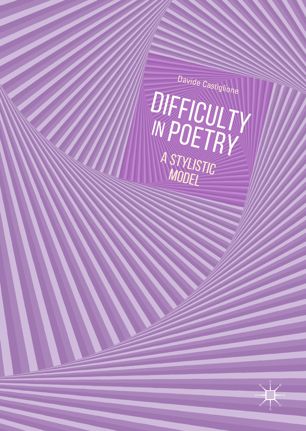

Most ebook files are in PDF format, so you can easily read them using various software such as Foxit Reader or directly on the Google Chrome browser.
Some ebook files are released by publishers in other formats such as .awz, .mobi, .epub, .fb2, etc. You may need to install specific software to read these formats on mobile/PC, such as Calibre.
Please read the tutorial at this link: https://ebookbell.com/faq
We offer FREE conversion to the popular formats you request; however, this may take some time. Therefore, right after payment, please email us, and we will try to provide the service as quickly as possible.
For some exceptional file formats or broken links (if any), please refrain from opening any disputes. Instead, email us first, and we will try to assist within a maximum of 6 hours.
EbookBell Team

4.7
96 reviewsThis book theoretically defines and linguistically analyses the popular notion that poetry is ‘difficult’ - hard to read, hard to understand, hard to engage with. It is the first work to offer a stylistic and cognitive model that sheds new light on the mechanisms of difficulty, as well as on its range of potential effects. Its eight chapters are organised into two thematic parts. The first traces the history of difficulty, surveys its main scholarly traditions, addresses related themes – from elitism to obscurity, from abstraction to intentionality – and introduces a wide array of analytical tools from literary theory and cognitive psychology. These tools are then consistently applied in the second part, which includes several extended analyses of poems by canonical modernists such as Ezra Pound, Wallace Stevens and Hart Crane, alongside those of postmodernist innovators such as Geoffrey Hill, Susan Howe and Charles Bernstein, among others. This innovative work will provide fresh insights and approaches for scholars of stylistics, literary studies, cognitive poetics and psychology.